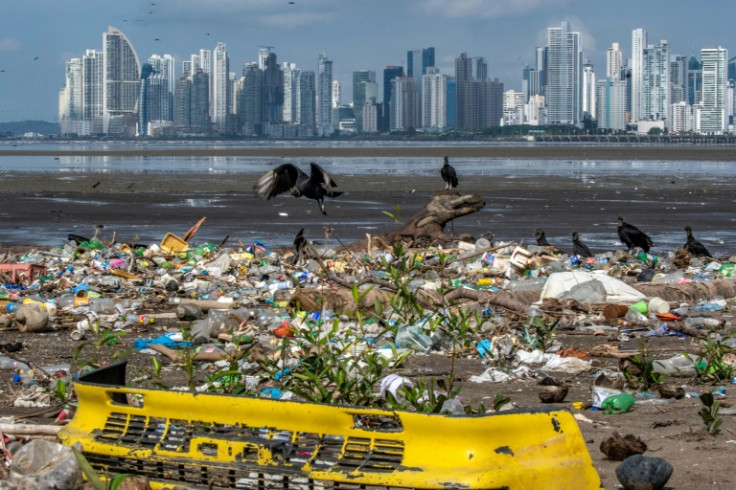
The Clean Air Task Force is working to mitigate the effects of methane, oil and gas throughout Latin America and the Caribbean.
The Latin Times talked to Kait Siegel, part of Clean Air Task Force's Waste Sector Manager On the Pollution Management and Prevention team, to understand how.
According to Siegel, one of CATF's focuses in Latin America is methane mitigation because, in the short term, it can be more dangerous than other greenhouse gasses.
"Methane is a greenhouse gas. It's the second most prevalent of these gasses in the atmosphere after carbon dioxide, which is what you usually hear about," Siegel said. "But it's also over 80 times more potent than carbon dioxide in the short term. So it has a much bigger heat-trapping effect, which is why we think it's so important and why our team specifically looks at methane and methane solutions."
CATF has been working in Latin America since 2016, mainly focusing on oil and gas pollution. They started addressing waste methane emissions last year. Siegel said one example of their efforts has been through its work with the Ministry of Environment, Water and Ecological Transition in Ecuador.
"We helped National governments conduct two waste characterizations in Puerto Lopez and Cayambe in Ecuador, to pilot a methodology that they developed so they could better understand the waste sector data that they have, which is really important for understanding emissions, for modeling and sculpting solutions for waste management," Siegel said.
These pilots are helping Ecuador develop national guidelines on waste characterization and source separation of waste, which all municipalities in the country will use.
In Colombia, Siegel said, they were conducting pre-feasibility assessments for organic market waste in Cartagena and Barranquilla. She said there is a lot of organic waste at food markets, so they're seeing if they can repurpose it instead of throwing it away to mitigate methane emissions. They're also targeting places like schools and hospitals, which have a lot of concentrated waste.
In addition to hands-on work with Latin American countries, Garcia-Holley said they've developed the Country Methane Abatement Tool, which enables governments to understand where their oil and gas sector emissions are coming from and learn the best practices. They do this to support countries as they start looking at their first approaches to mitigate methane emissions in their country.
"There's lots of ways to mitigate methane from the waste sector. The first thing that we can all do is try to lessen the amount of waste we produce overall, so that we're sending less of our trash to landfills and dump sites, and it doesn't break down there and form methane pollution as well as other environmental and public health contaminants like leachate for example," Siegel said.
Another way to mitigate methane pollution from waste is to separate organic waste from other waste, such as plastics, and then compost it. She said there is also a more technological solution that entails creating gas capture sites at landfills, which takes the methane out of the waste, which is then converted to carbon dioxide, which is less harmful, or it can be used to generate electricity. Siegel said they're trying to bring these kinds of solutions to Latin America.
Regarding oil and gas, Garcia-Holley said there are three main solutions to prevent methane emissions. The first is leak detection and repair programs, the second is eliminating unnecessary gas venting and flaring, and the third is updating outdated equipment.
Clean Air Task Force's Panel in Panama City
A recent effort towards trying to extend its reach into Latin America came through its panel at Latin America and the Caribbean Climate Week in Panama City on Oct. 26. CATF Latin America and The Caribbean Policy Manager for the Methane Pollution Prevention Team, Paula Garcia-Holley, described the event as a space to raise awareness of sources of methane in each country.
"Our event had a focus on waste methane and the road towards meeting the Global Methane Pledge," Garcia-Holley said. "In that sense, it was a space for other actors to participate, share their experiences and how they visualize the implementation of the global methane pledge."
At the event, Garcia-Holley said they shared the importance of methane in the sector, its role, its different sources, and the importance and ease of mitigating methane emissions within the sector. Following the intro in which they described what methane is and its effects, there was the moderated panel discussion that included climate experts and representatives from other Latin American countries.
This panel in Panama City, Siegel said, was an opportunity for their partners from Colombia, Chile, Ecuador and Brazil to showcase their great work and inspire other countries in the Latin American region who haven't begun yet.
"I think it's important to raise awareness on methane. It's not necessarily a topic of conversation or the prime focus for the waste sector, so it helps shift the perspective of some of the attendees that were there and helps them start thinking about how they could potentially reframe some of their projects because there are other aspects to waste management that are equally important," Garacia-Holley said. "I think we had really good input from them, and as well, we saw some really good engagement from different countries or [with] consultants to start furthering the conversation with them."
© 2025 Latin Times. All rights reserved. Do not reproduce without permission.





